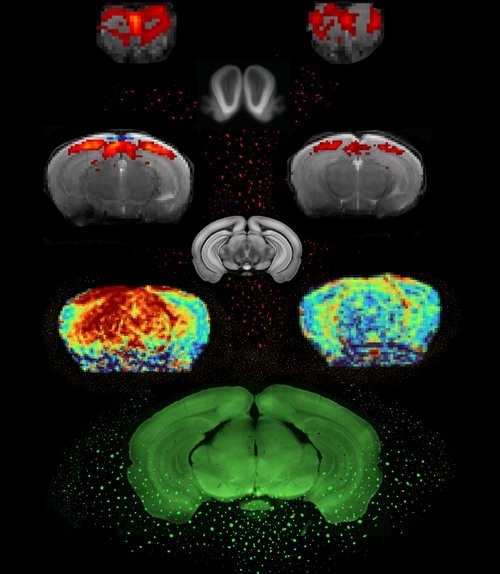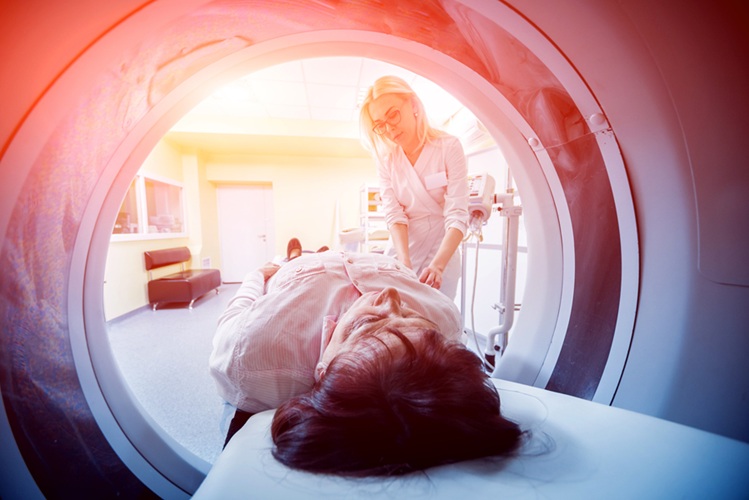MRI Equipment Plant to Provide Advanced Systems to Emerging Countries
|
By MedImaging International staff writers Posted on 06 Nov 2008 |
The first magnetic resonance imaging (MRI) equipment manufacturing facility in Brazil was recently constructed to provide advanced healthcare systems to emerging markets. Customers across Latin America are expected to benefit from shorter delivery periods and reduced equipment costs.
The factory also contributes to the development of Brazil's high-tech industry, as well as to the regional economy in the state of Minas Gerais, where the facility is based. In October 2008, Philips Healthcare (Best, The Netherlands) celebrated the opening of the plant. Starting November 2008, the plant will also produce computed tomography (CT) devices. It will be the only site in Latin America manufacturing the two types of equipment, and one of only a few facilities manufacturing such devices in the world. The new production plant was built at the former site of VMI Sistemas Médicos, a Brazilian diagnostics equipment manufacturer acquired by Philips in 2007.
"The use of advanced diagnostic equipment such as the devices that will be manufactured at the new facility is well established in hospitals across the region,” stated Daurio Speranzini Júnior, vice president for Philips Healthcare in Latin America. "This factory is part of Philips' strategy to offer the right solutions in the right markets, and reflects our belief in the growing importance of emerging markets such as Latin America.”
Three types of MRI device will be manufactured in Brazil: the Intera 1.5T and Achieva 1.5T and 3.0T. At first, 70% of the components for the devices will be imported, but Philips' intention is to increase the proportion of locally produced components to 60% by mid-2010. The company is currently identifying and equipping locally based factories to enable them to manufacture many of the highly advanced components used in the devices. "In a sense, we are going through the same process that the Brazilian automobile industry underwent a few decades ago--by strengthening a specialized industrial sector we can position the country amongst the leading manufacturers of medical equipment globally,” added Mr. Speranzini.
The intended delivery time of the products is significantly reduced from eight months to 30 days. There will also be a reduction of approximately 15% on the final price of the MRI equipment due to a combination of reduced taxes and lowered production costs.
Related Links:
Philips Healthcare
The factory also contributes to the development of Brazil's high-tech industry, as well as to the regional economy in the state of Minas Gerais, where the facility is based. In October 2008, Philips Healthcare (Best, The Netherlands) celebrated the opening of the plant. Starting November 2008, the plant will also produce computed tomography (CT) devices. It will be the only site in Latin America manufacturing the two types of equipment, and one of only a few facilities manufacturing such devices in the world. The new production plant was built at the former site of VMI Sistemas Médicos, a Brazilian diagnostics equipment manufacturer acquired by Philips in 2007.
"The use of advanced diagnostic equipment such as the devices that will be manufactured at the new facility is well established in hospitals across the region,” stated Daurio Speranzini Júnior, vice president for Philips Healthcare in Latin America. "This factory is part of Philips' strategy to offer the right solutions in the right markets, and reflects our belief in the growing importance of emerging markets such as Latin America.”
Three types of MRI device will be manufactured in Brazil: the Intera 1.5T and Achieva 1.5T and 3.0T. At first, 70% of the components for the devices will be imported, but Philips' intention is to increase the proportion of locally produced components to 60% by mid-2010. The company is currently identifying and equipping locally based factories to enable them to manufacture many of the highly advanced components used in the devices. "In a sense, we are going through the same process that the Brazilian automobile industry underwent a few decades ago--by strengthening a specialized industrial sector we can position the country amongst the leading manufacturers of medical equipment globally,” added Mr. Speranzini.
The intended delivery time of the products is significantly reduced from eight months to 30 days. There will also be a reduction of approximately 15% on the final price of the MRI equipment due to a combination of reduced taxes and lowered production costs.
Related Links:
Philips Healthcare
Latest Industry News News
- GE HealthCare and NVIDIA Collaboration to Reimagine Diagnostic Imaging
- Patient-Specific 3D-Printed Phantoms Transform CT Imaging
- Siemens and Sectra Collaborate on Enhancing Radiology Workflows
- Bracco Diagnostics and ColoWatch Partner to Expand Availability CRC Screening Tests Using Virtual Colonoscopy
- Mindray Partners with TeleRay to Streamline Ultrasound Delivery
- Philips and Medtronic Partner on Stroke Care
- Siemens and Medtronic Enter into Global Partnership for Advancing Spine Care Imaging Technologies
- RSNA 2024 Technical Exhibits to Showcase Latest Advances in Radiology
- Bracco Collaborates with Arrayus on Microbubble-Assisted Focused Ultrasound Therapy for Pancreatic Cancer
- Innovative Collaboration to Enhance Ischemic Stroke Detection and Elevate Standards in Diagnostic Imaging
- RSNA 2024 Registration Opens
- Microsoft collaborates with Leading Academic Medical Systems to Advance AI in Medical Imaging
- GE HealthCare Acquires Intelligent Ultrasound Group’s Clinical Artificial Intelligence Business
- Bayer and Rad AI Collaborate on Expanding Use of Cutting Edge AI Radiology Operational Solutions
- Polish Med-Tech Company BrainScan to Expand Extensively into Foreign Markets
- Hologic Acquires UK-Based Breast Surgical Guidance Company Endomagnetics Ltd.
Channels
Radiography
view channel
Machine Learning Algorithm Identifies Cardiovascular Risk from Routine Bone Density Scans
A new study published in the Journal of Bone and Mineral Research reveals that an automated machine learning program can predict the risk of cardiovascular events and falls or fractures by analyzing bone... Read more
AI Improves Early Detection of Interval Breast Cancers
Interval breast cancers, which occur between routine screenings, are easier to treat when detected earlier. Early detection can reduce the need for aggressive treatments and improve the chances of better outcomes.... Read more
World's Largest Class Single Crystal Diamond Radiation Detector Opens New Possibilities for Diagnostic Imaging
Diamonds possess ideal physical properties for radiation detection, such as exceptional thermal and chemical stability along with a quick response time. Made of carbon with an atomic number of six, diamonds... Read moreMRI
view channel
Simple Brain Scan Diagnoses Parkinson's Disease Years Before It Becomes Untreatable
Parkinson's disease (PD) remains a challenging condition to treat, with no known cure. Though therapies have improved over time, and ongoing research focuses on methods to slow or alter the disease’s progression,... Read more
Cutting-Edge MRI Technology to Revolutionize Diagnosis of Common Heart Problem
Aortic stenosis is a common and potentially life-threatening heart condition. It occurs when the aortic valve, which regulates blood flow from the heart to the rest of the body, becomes stiff and narrow.... Read moreUltrasound
view channel
New Incision-Free Technique Halts Growth of Debilitating Brain Lesions
Cerebral cavernous malformations (CCMs), also known as cavernomas, are abnormal clusters of blood vessels that can grow in the brain, spinal cord, or other parts of the body. While most cases remain asymptomatic,... Read more.jpeg)
AI-Powered Lung Ultrasound Outperforms Human Experts in Tuberculosis Diagnosis
Despite global declines in tuberculosis (TB) rates in previous years, the incidence of TB rose by 4.6% from 2020 to 2023. Early screening and rapid diagnosis are essential elements of the World Health... Read moreNuclear Medicine
view channel
New Imaging Approach Could Reduce Need for Biopsies to Monitor Prostate Cancer
Prostate cancer is the second leading cause of cancer-related death among men in the United States. However, the majority of older men diagnosed with prostate cancer have slow-growing, low-risk forms of... Read more
Novel Radiolabeled Antibody Improves Diagnosis and Treatment of Solid Tumors
Interleukin-13 receptor α-2 (IL13Rα2) is a cell surface receptor commonly found in solid tumors such as glioblastoma, melanoma, and breast cancer. It is minimally expressed in normal tissues, making it... Read moreGeneral/Advanced Imaging
view channel
First-Of-Its-Kind Wearable Device Offers Revolutionary Alternative to CT Scans
Currently, patients with conditions such as heart failure, pneumonia, or respiratory distress often require multiple imaging procedures that are intermittent, disruptive, and involve high levels of radiation.... Read more
AI-Based CT Scan Analysis Predicts Early-Stage Kidney Damage Due to Cancer Treatments
Radioligand therapy, a form of targeted nuclear medicine, has recently gained attention for its potential in treating specific types of tumors. However, one of the potential side effects of this therapy... Read moreImaging IT
view channel
New Google Cloud Medical Imaging Suite Makes Imaging Healthcare Data More Accessible
Medical imaging is a critical tool used to diagnose patients, and there are billions of medical images scanned globally each year. Imaging data accounts for about 90% of all healthcare data1 and, until... Read more






















